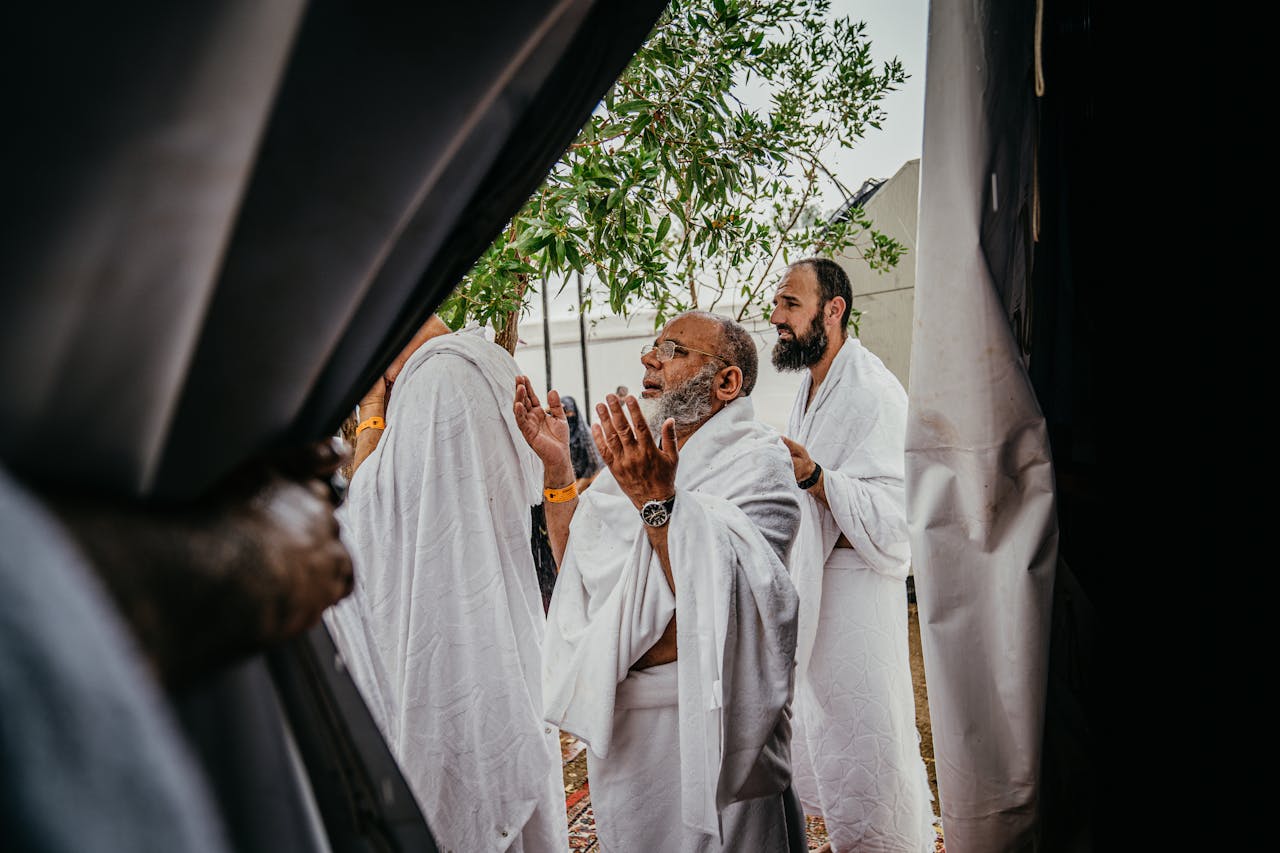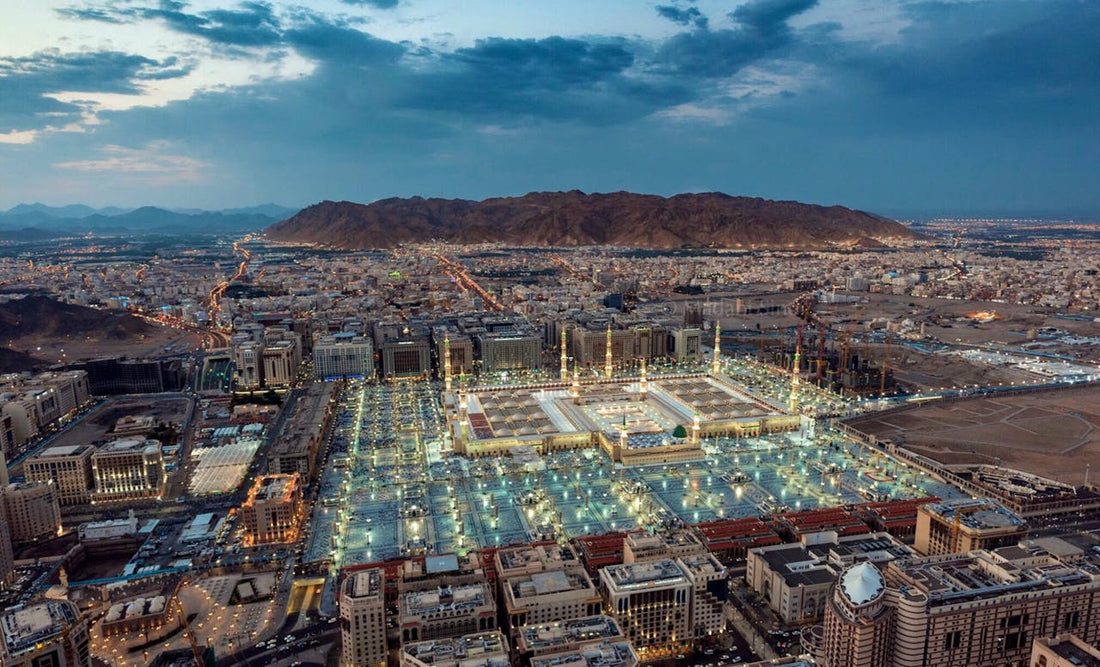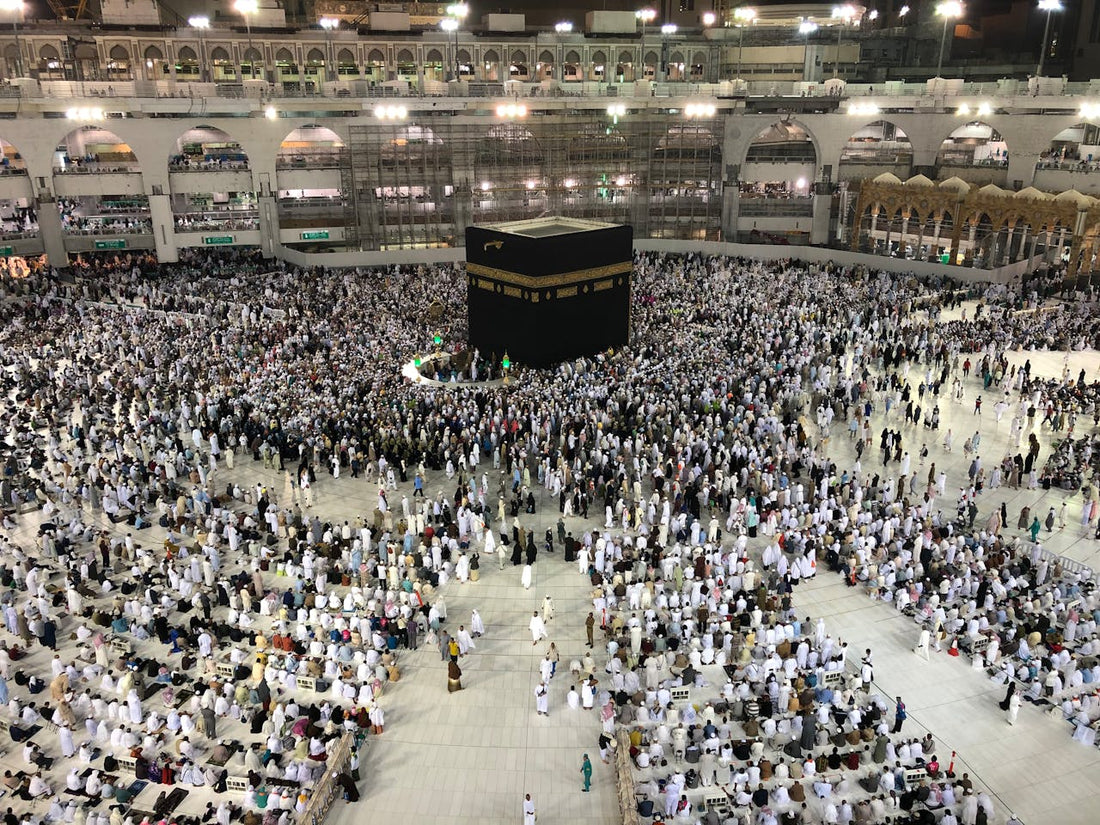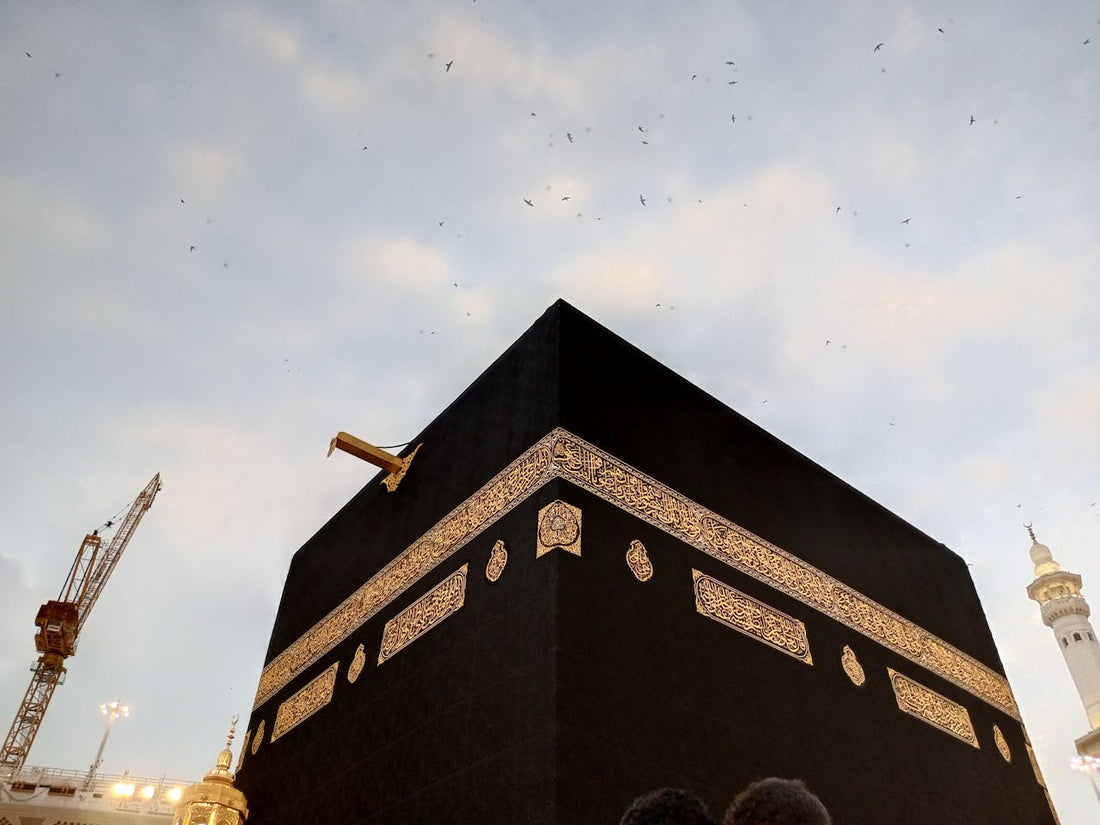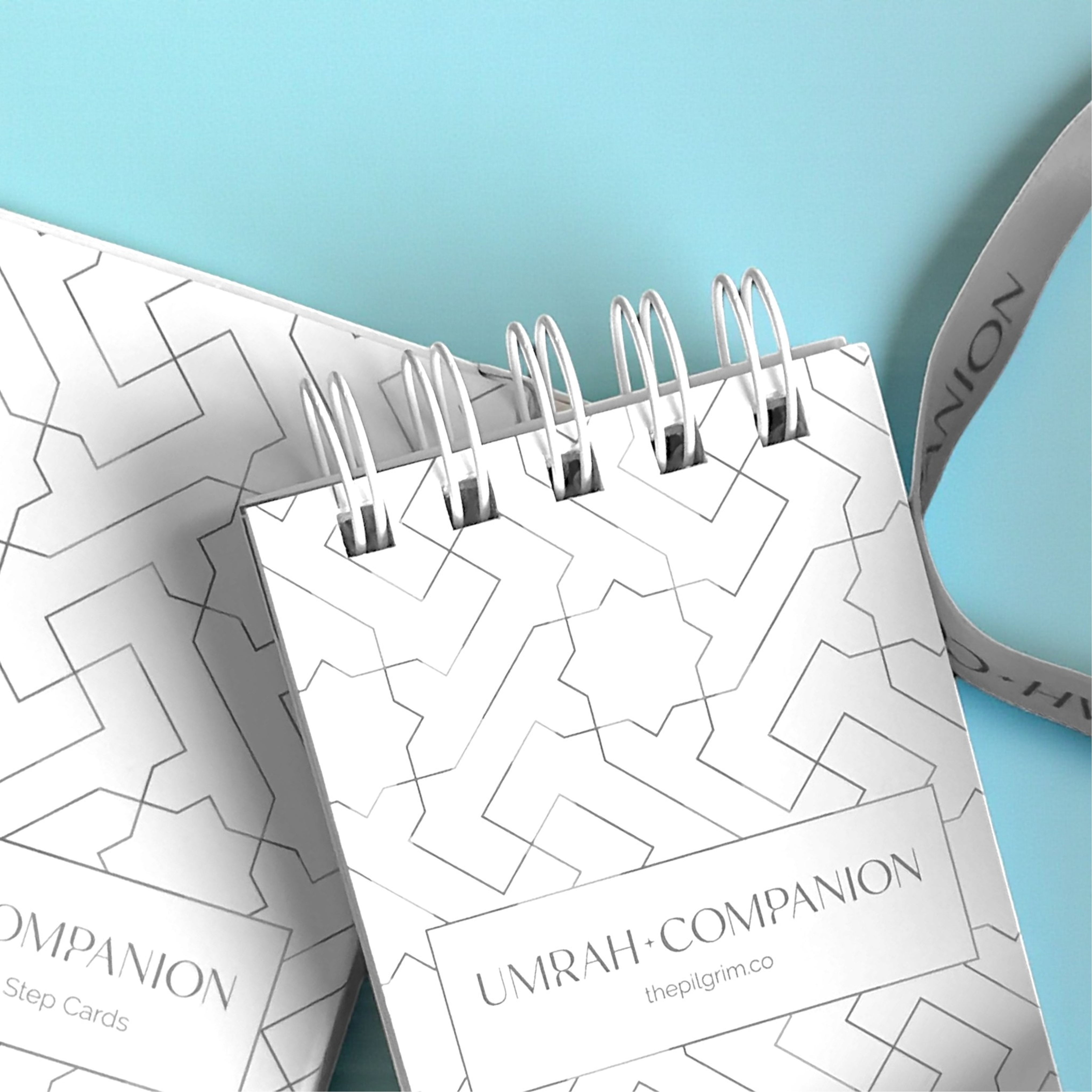Umrah is a cherished journey of faith, mercy, and renewal. As a Muslim pilgrim journeys toward Makkah, a specific range of duas for Umrah, from the intention (niyyah) to Tawaf and Sa’i, serve as spiritual anchors and practical guides.
Each supplication, recited in Arabic with meaning and goodwill, helps the pilgrim remain focused, humble, and connected to Allah (سُبْحَانَهُ وَتَعَالَىٰ).
This article collects and explains the essential umrah duas, when to say them, and how to make your worship count.
Essential List of Duas for Umrah
The following list includes the most commonly recited and highly recommended supplications you’ll need, in a logical order: from pre‑travel intention to the completion of Sa’i.
- Dua before leaving home
- Dua for boarding the vehicle
- Dua entering Makkah
- Niyyah and Talbiyah
- Supplication upon seeing the Kaaba
- Duas during Tawaf (inc. start, Yemeni corner, between Yemeni corner and Hajar al‑Aswad)
- Dua after drinking Zamzam
- Duas during Sa’i between Safa and Marwah
- Dua ending at the final mount
- Duas for general personal needs
How to Make Dua Effectively During Umrah
To enhance acceptance of your duas during Umrah, make sure your heart is present in every word. Sincerity and humility are key.
Engage with the dua emotionally, understanding its meaning.
Raise your hands, face the Kaaba when possible, and choose times when duas are more likely to be accepted, such as during Tawaf, at Safa and Marwah, after drinking Zamzam, and while in sujood.
Combine Quranic duas with your own personal prayers.
Speak from your heart about your needs, worries, and hopes.

Do My Duas Get Accepted During Umrah?
Umrah is not just a journey of the body, as it is one of the soul.
The sanctity of Makkah and the spiritual intensity of the rites increase the chance of your prayers being accepted.
Thus, your dua carries special weight during Umrah, especially at sacred locations: entering the Haram, the Haram’s boundaries, during Tawaf, at Maqam Ibrahim, at Safa and Marwah, and while drinking Zamzam.
Duas For Umrah Before Starting the Journey
Arabic: بِسْمِ اللَّهِ، تَوَكَّلْتُ عَلَى اللَّهِ، وَلَا حَوْلَ وَلَا قُوَّةَ إِلَّا بِاللَّهِ
Translation: “I begin with the Name of Allah; I trust in Allah; there is no altering of conditions but by the Power of Allah.
Transliteration: Bismillah, tawakkaltu ‘alallah, wa la hawla wa la quwwata illa billah.
Recite this as you depart home or before your journey begins. It calls blessings and keeps your heart in remembrance.
Dua for Boarding a Vehicle While Travelling for Umrah
Arabic: اللَّهُ أَكْبَرُ، اللَّهُ أَكْبَرُ، اللَّهُ أَكْبَرُ
سُبْحَانَ الَّذِي سَخَّرَ لَنَا هَٰذَا وَمَا كُنَّا لَهُ مُقْرِنِينَ، وَإِنَّا إِلَىٰ رَبِّنَا لَمُنقَلِبُونَ
اللَّهُمَّ إِنَّا نَسْأَلُكَ فِي سَفَرِنَا هَذَا الْبِرَّ وَالتَّقْوَىٰ، وَمِنَ الْعَمَلِ مَا تَرْضَىٰ
اللَّهُمَّ هَوِّنْ عَلَيْنَا سَفَرَنَا هَٰذَا وَاطْوِ عَنَّا بُعْدَهُ
اللَّهُمَّ أَنْتَ الصَّاحِبُ فِي السَّفَرِ، وَالْخَلِيفَةُ فِي الْأَهْلِ
اللَّهُمَّ إِنِّي أَعُوذُ بِكَ مِنْ وَعْثَاءِ السَّفَرِ، وَكَآبَةِ الْمَنْظَرِ، وَسُوءِ الْمُنْقَلَبِ فِي الْمَالِ وَالْأَهْلِ
Translation: "Allah is the Greatest, Allah is the Greatest, Allah is the Greatest. How perfect is He who has subjected this (transport) to us, and we could not have done it by ourselves. And indeed, to our Lord we will surely return. O Allah, we ask You during this journey for righteousness and piety, and deeds that please You. O Allah, make this journey easy for us and shorten its distance. O Allah, You are our Companion on the journey and the One in whose care we leave our family. O Allah, I seek refuge in You from the hardships of travel, from having a change of heart and being in a bad situation, and from an ill-fated outcome with our wealth and family.”
Transliteration: Allāhu akbar, Allāhu akbar, Allāhu akbar Subḥāna l-ladhī sakhkhara lanā hādhā wa mā kunnā lahu muqrinīn, wa innā ilā rabbinā lamunqalibūn Allāhumma innā nas’aluka fī safarinā hādhā l-birra wa t-taqwā, wa mina l-ʿamali mā tarḍā Allāhumma hawwin ʿalaynā safaranā hādhā waṭwi ʿannā buʿdah Allāhumma anta ṣ-ṣāḥibu fī s-safar, wa-l-khalīfatu fī l-ahl Allāhumma innī aʿūdhu bika min waʿthāʾi s-safar, wa kāābati l-manẓar, wa sūʾi l-munqalabi fī l-māli wa l-ahl
Source: Sahih Muslim 1342
Dua Upon Arrival in Makkah For Performing Umrah
Arabic: أَعُوذُ بِكَلِمَاتِ اللَّهِ التَّامَّاتِ مِنْ شَرِّ مَا خَلَقَ
Translation: "I seek refuge in Allah's perfect words from the evil of what He has created."
Transliteration: Aʿūdhu bikalimāti-llāhi-t-tāmmāti min sharri mā khalaq
Use your own heartfelt dua on arrival, asking Allah to accept your task and guide your footsteps.
Umrah Dua Cards With Lanyard
Many pilgrims find portable Umrah dua cards with lanyard very useful for quick recitation. You can find high-quality products, such as this Umrah dua cards with lanyard, offering essential supplications on durable waterproof cards.
Dua Before Entering the State of Ihram for Umrah
Arabic: سُبْحَانَ اللَّهِ، لَا إِلٰهَ إِلَّا اللَّهُ، اللَّهُ أَكْبَرُ
Translation: "Glory be to Allah, there is no god but Allah, and Allah is the Greatest."
Transliteration: Subḥānallāh, Lā ilāha illallāh, Allāhu akbar
Note: This is from general dhikr, which is recommended before intention.
Umrah Duas for Making Intention and Reciting the Talbiyah
Arabic: اللَّهُمَّ إِنِّي أُرِيدُ الْعُمْرَةَ فَيَسِّرْهَا لِي وَتَقَبَّلْهَا مِنِّي
Translation: "O Allah, I intend to perform Umrah, so make it easy for me and accept it from me."
Transliteration: Allāhumma innī urīdu al-ʿumrah fa-yassirhā lī wa taqabbalhā minnī
Recite this often throughout Ihram, walking, standing, or entering the khana.

Duas When Entering Masjid Al Haram to Perform Umrah
Step into Masjid Al Haram with your right foot and recite:
Arabic: بِسْمِ اللَّهِ وَالْحَمْدُ لِلَّهِ وَالصَّلَاةُ عَلَى رَسُولِ اللَّهِ، اللَّهُمَّ اغْفِرْ لِي ذُنُوبِي وَافْتَحْ لِي أَبْوَابَ رَحْمَتِكَ
Translation: "I begin in the name of Allah, all praise be to Him, and blessings be upon the Messenger of Allah. O Allah, forgive my sins and open for me the gates of Your mercy."
Transliteration: Bismillāhi wal-ḥamdu lillāhi waṣ-ṣalātu ʿalā Rasūlillāh, Allāhumma-ighfir lī dhunūbī wa-ftaḥ lī abwāba raḥmatika

Collect Personal Duas for Umrah
Every pilgrim carries a personal heart journey, i.e., prayers for family, forgiveness, loved ones, or health.
You can use tools like My Dua List, which allows writing and saving custom duas, reminding you during rituals.
Imagine opening your app or list in Makkah to see your personalised dua ready, as this helps maintain focus and sincerity.
Dua When First Seeing the Kaaba During Umrah
It is reported that upon seeing the Kaaba for the first time, the Prophet (صلى الله عليه وسلم) recited these beautiful and powerful supplications.
It is a moment of great significance, and pilgrims are encouraged to stop, face the Kaaba with humility, and make heartfelt du'a.
Arabic:
اللَّهُمَّ زِدْ هَذَا الْبَيْتَ تَشْرِيفًا وَتَعْظِيمًا وَتَكْرِيمًا وَمَهَابَةً، وَزِدْ مَنْ شَرَّفَهُ وَكَرَّمَهُ مِمَّنْ حَجَّهُ أَوِ اعْتَمَرَهُ تَشْرِيفًا وَتَكْرِيمًا وَتَعْظِيمًا وَبِرًّا
Translation: "O Allah, increase this House in honour, esteem, reverence, and awe. And increase those who honour and ennoble it, from among those who perform Hajj or Umrah, in honour, esteem, reverence, and righteousness.”
Transliteration: Allāhumma zid hādhā l-bayta tashrīfan wa taʿẓīman wa takrīman wa mahābatan, wa zid man sharrafa-hū wa karrama-hū mimman ḥajjahu awiʿtamara-hū tashrīfan wa takrīman wa taʿẓīman wa birran.

Duas for Tawaf Around the Kaaba During Umrah
As you begin Tawaf, i.e., the act of circumambulating the Kaaba seven times in an anti-clockwise direction, it's recommended to stay engaged in dhikr, dua, and remembrance of Allah throughout.
Arabic: بِسْمِ اللَّهِ، اللَّهُ أَكْبَرُ، وَلِلَّهِ الْحَمْدُ
Translation: "In the name of Allah, Allah is the Greatest, and all praise belongs to Allah."
Transliteration: Bismillāhi, Allāhu Akbar, wa lillāhil-ḥamd
Umrah Dua Cards PDF
For easy reference, a downloadable Umrah dua cards PDF offers neat, printable dua pages suitable for saving on phones or printing before your trip.
Dua Between the Yemeni Corner and the Black Stone
When the Prophet Muhammad (صلى الله عليه وسلم) would walk between the Yemeni Corner (Rukn al-Yamani) and the Black Stone (Hajar al-Aswad), i.e., the final stretch of each circuit, he would consistently recite the following powerful and comprehensive supplication:
Arabic: رَبَّنَا آتِنَا فِيْ الدُّنْيَا حَسَنَةً وَفِيْ الآخِرَةِ حَسَنَةً وَقِنَا عَذَابَ النَّارِ
Translation: "Our Lord, grant us good in this world and good in the Hereafter, and save us from the punishment of the Fire."
Transliteration: Rabbanaa aatinaa fid-dunyaa hasanah wa fil-aakhirati hasanah wa qinaa 'adhaaban-naar
Dua After Drinking Zamzam During Umrah
Zamzam is a blessed water with deep historical and spiritual value.
The Prophet Muhammad (صلى الله عليه وسلم) said: "The water of Zamzam is for whatever it is drunk for." (Sunan Ibn Majah 3062, graded Hasan)
So when drinking Zamzam, you should intend a clear and sincere dua.
Arabic: اللَّهُمَّ إِنِّي أَسْأَلُكَ عِلْمًا نَافِعًا، وَرِزْقًا وَاسِعًا، وَشِفَاءً مِنْ كُلِّ دَاءٍ
Translation: “O Allah, I ask You for beneficial knowledge, ample provision, and healing from every disease.”
Transliteration: Allahumma innee as’aluka ‘ilman naafi’an, wa rizqan waasi’an, wa shifaa’an min kulli daa’in
Feel free to recite along with the established Prophetic supplication for beneficial knowledge, halal sustenance, and accepted deeds.
Ask for healing, clarity, provision, or personal spiritual goals. This is an intimate moment between you and Allah.

Duas for Sa’ee Between Safa and Marwah During Umrah
Sa’ee is a significant and mandatory ritual of Umrah, involving walking seven times between the two sacred hills, i.e., Safa and Marwah.
It commemorates the striving of Hajar (the wife of Prophet Ibrahim عليه السلام) in search of water for her son Isma'il.
Verse to Recite When Climbing Safa for the First Time
When reaching the hill of Safa for the first time, it is Sunnah to begin by reciting the following Qur'anic verse:
Arabic:
إِنَّ ٱلصَّفَا وَٱلْمَرْوَةَ مِن شَعَـٰٓئِرِ ٱللَّهِ ۖ فَمَنْ حَجَّ ٱلْبَيْتَ أَوِ ٱعْتَمَرَ فَلَا جُنَاحَ عَلَيْهِ أَن يَطَّوَّفَ بِهِمَا ۚ وَمَن تَطَوَّعَ خَيْرًۭا فَإِنَّ ٱللَّهَ شَاكِرٌ عَلِيمٌ
Translation: “Indeed, Safa and Marwah are among the symbols of Allah. So whoever makes Hajj to the House or performs Umrah, there is no blame upon him for walking between them. And whoever volunteers good, then indeed, Allah is appreciative and Knowing.” (Surah Al-Baqarah 2:158)
Transliteration: Innassafaa wal marwata min sha’ā’irillāh; fa man ḥajj al-bayta awi‘tamara falā junāḥa ‘alayhi an yaṭṭawwafa bihimā, wa man taṭawwa‘a khayran fa innallāha shākirun ‘alīm

What to Say During the Walk Between Safa and Marwah
There is no single fixed du’a for the walking part.
Pilgrims are encouraged to make personal du’as, remember Allah, and use phrases of praise and glorification such as:
-
سُبْحَانَ اللّٰهِ
- SubhanAllah: “Glory be to Allah”
-
الْـحَمْدُ لِلّٰهِ
- Alhamdulillah: “All praise is due to Allah”
-
لَا إِلٰهَ إِلَّا اللّٰهُ
- La ilaha illAllah: “There is no god but Allah”
-
اللّٰهُ أَكْبَرُ
- Allahu Akbar: “Allah is the Greatest”
-
لَا حَوْلَ وَلَا قُوَّةَ إِلَّا بِاللّٰهِ
- La hawla wa la quwwata illa billah: “There is no power nor strength except through Allah”
Du’a to Say at the Mounts of Safa and Marwah
When standing on Mount Safa or Mount Marwah, the Prophet (صلى الله عليه وسلم) would raise his hands in du’a and say:
Arabic:
اللّٰهُ أَكْبَرُ، اللّٰهُ أَكْبَرُ، اللّٰهُ أَكْبَرُ، لَا إِلٰهَ إِلَّا اللّٰهُ وَحْدَهُ لَا شَرِيكَ لَهُ، لَهُ الْمُلْكُ وَلَهُ الْحَمْدُ، وَهُوَ عَلَىٰ كُلِّ شَيْءٍ قَدِيرٌ، لَا إِلٰهَ إِلَّا اللّٰهُ، أَنْجَزَ وَعْدَهُ، وَنَصَرَ عَبْدَهُ، وَهَزَمَ الْأَحْزَابَ وَحْدَهُ
Translation: "Allah is the Greatest, Allah is the Greatest, Allah is the Greatest. There is no god but Allah alone, without partner. To Him belongs all sovereignty and all praise, and He is over all things All-Powerful. There is no god but Allah alone — He fulfilled His promise, helped His servant, and defeated the confederates alone.”
Transliteration: Allāhu akbar, Allāhu akbar, Allāhu akbar. Lā ilāha illa Allāhu waḥdahu lā sharīka lah. Lahul-mulku wa lahul-ḥamdu wa huwa ‘alā kulli shay’in qadīr. Lā ilāha illa Allāh, anjaza wa‘dah, wa naṣara ‘abdah, wa hazamal-aḥzāba waḥdah.
Repeat this three times, making du’a between each repetition.
Pilgrim Umrah Step By Step Guide
For structured help, Pilgrim App offers guided steps: from your travel details, dua reminders, Umrah navigation, and dua tracking.
It’s a modern companion, especially helpful for first-time pilgrims to stay oriented and spiritually engaged.
Dua When Standing on Mount Safa and Mount Marwah
When reaching Mount Safa during Sa’ee (the first stop of the seven circuits between Safa and Marwah), it is Sunnah to face the Kaaba, raise your hands, and recite the following comprehensive supplication taught by the Prophet (صلى الله عليه وسلم):
Arabic:
اَللّٰهُ أَكْبَرُ اَللّٰهُ أَكْبَرُ اَللّٰهُ أَكْبَرُ، لَا إِلٰهَ إِلَّا اللّٰهُ وَحْدَهُ لَا شَرِيْكَ لَهُ، لَهُ الْمُلْكُ وَلَهُ الْحَمْدُ، وَهُوَ عَلَىٰ كُلِّ شَيْءٍ قَدِيْرٌ، لَا إِلٰهَ إِلَّا اللّٰهُ، أَنْجَزَ وَعْدَهُ، وَنَصَرَ عَبْدَهُ، وَهَزَمَ الْأَحْزَابَ وَحْدَهُ
Translation: “Allah is the Greatest, Allah is the Greatest, Allah is the Greatest. There is none truly worthy of worship except Allah alone, without partner. To Him belongs all sovereignty and all praise. He is All-Powerful over everything. There is none truly worthy of worship except Allah alone. He fulfilled His promise, helped His servant, and defeated the confederates by Himself.”
Transliteration: Allāhu Akbar, Allāhu Akbar, Allāhu Akbar. Lā ilāha illa Allāh waḥdahu lā sharīka lah. Lahul-mulku wa lahul-ḥamdu wa huwa ‘alā kulli shay’in qadīr. Lā ilāha illa Allāh, anjaza wa‘dahu, wa naṣara ‘abdahu, wa hazamal-aḥzāba waḥdahu.
This entire du’a is traditionally repeated three times, with personal supplications made in between each repetition.
What Is the Perfect Umrah Gift?
For pilgrims or loved ones:
- Dua cards: printed or digital PDF
- Dua cards + lanyard (physical convenience)
- Ihram belt (helps keep Ihram in place)
- Mina/Hajj bag or Ziyarah guides
These make thoughtful gifts that support worship and ease the journey.

What Should I Pray for In Umrah?
During Umrah, your duas can cover a wide range of needs, both personal and for others. Ask Allah (سُبْحَانَهُ وَتَعَالَىٰ) for spiritual purification, forgiveness, steadfastness in faith, and barakah in your life.
You can pray for your parents, family, and the entire Ummah.
Many people pray for righteous children, success in studies, marriages, halal livelihood, and relief from hardships.
Since Umrah is a time of reflection and mercy, include duas that uplift your heart and bring you closer to the purpose of worship.
Frequently Asked Questions
What to say to someone performing Umrah?
“Umrah Mabroor”, i.e., wishing acceptance and spiritual reward.
What duas to read during tawaf in Umrah?
The only specific one is between the Yemeni Corner and the Black Stone:
Arabic: يَقُولُ رَبَّنَآ ءَاتِنَا فِى ٱلدُّنْيَا حَسَنَةًۭ وَفِى ٱلْـَٔاخِرَةِ حَسَنَةًۭ وَقِنَا عَذَابَ ٱلنَّارِ
Translation: “Our Lord, grant us good in this world and the Hereafter, and protect us from the Fire.”
Should I face the Kaaba when making dua?
It’s recommended where possible, but sincerely facing Qiblah strengthens focus.
How to perform Umrah - Step by Step guide
Here's a simple breakdown:
- Make niyyah and enter Ihram at Miqat
- Recite Talbiyah with humility and presence
- Enter Masjid al-Haram, keeping your gaze lowered initially
- Perform Tawaf (7 rounds around the Kaaba) and prayers
- Pray 2 rakats behind Maqam Ibrahim
- Drink Zamzam and make heartfelt dua
- Perform Sa’i between Safa and Marwah
- End with halq (shaving head) or taqsir (trimming)
- Exit Ihram and make final supplications
What are the 7 miqat boundaries for Umrah?
The main miqat points are:
- Dhul Hulayfah (for people from Madinah)
- Al-Juhfah (for those coming from the direction of Egypt/Levant)
- Qarn al-Manazil (for those from Najd or GCC)
- Yalamlam (for those from Yemen)
- Dhat Irq (for those coming from Iraq)
- A place parallel to any miqat (for those flying in and passing over)
- Tan’im (Masjid Aisha): specifically for those already in Makkah performing another Umrah
Is it okay to say Umrah Mubarak?
Yes, it’s fine. Though not from the Qur’an or Sunnah, "Umrah Mubarak" is a cultural way of congratulating someone. It’s a kind and permissible expression.
What to say while walking around the Kaaba?
Recite dhikr and personal duas. There are no fixed words. You can say SubhanAllah, Alhamdulillah, La ilaha illallah, or make personal duas in any language.
Summary - Duas For Umrah
This complete guide unites every essential dua for Umrah, from pre‑travel intention to arrival, entry, Tawaf, Sa’i, Zamzam, and departure. By learning them in Arabic, with translation and transliteration, pilgrims stay spiritually connected and aligned with Sunnah.
Arming yourself with printed or PDF dua cards and using mobile apps for reminders, such as the Pilgrim App, ensures you never lose track in the crowds. Choose meaningful gifts like dua lanyards or ihram belts to support others on their journey.
Umrah affords a powerful time to reflect, repent, and renew. May Allah (سُبْحَانَهُ وَتَعَالَىٰ) accept yours, elevate your worship, and grant peace and mercy to you and the Ummah. Ameen.
